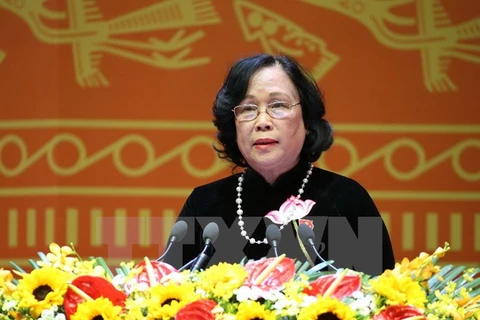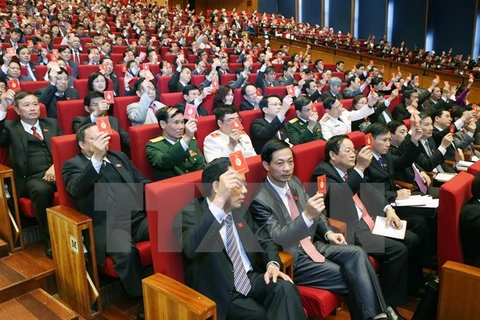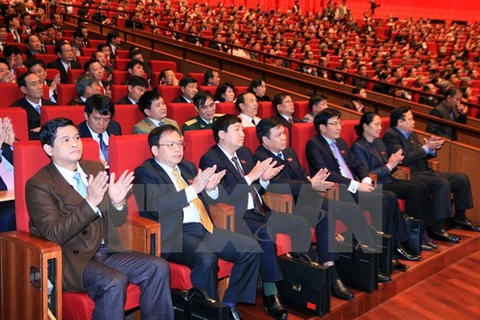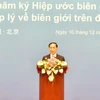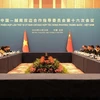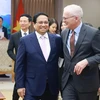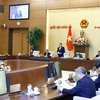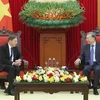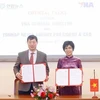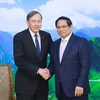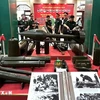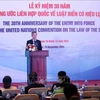Hanoi (VNA) – The 12th National Party Congress discussed the criteria for Party Central Committee members and the structure of the 12th Party Central Committee during its fourth working day in Hanoi on January 24.
Participants also mulled over a list of nominations for members of 12 th Party Central Committee, both official and alternate, prepared by the 11 th tenure’s committee. They later proposed additional candidates outside of the list.
Heads of delegations attending the event afterwards reported their lists of supplementary nominations for the committee.
Earlier on January 23, the Congress approved the number of the Committee’s members for the 12th tenure, comprising 180 official and 20 alternate ones.
In an interview granted to Vietnam News Agency ahead of the event, Politburo member and permanent member of the 11th Party Central Committee’s Secretariat Le Hong Anh said four requirements have been set for the 12th Party Central Committee.
The 12th Party Central Committee must be a transparent and strong group that is united in will and action, and steadfast in the goal of maintaining independence and developing democracy and socialism. Its members must have firm political will, good morality, a strategic vision and aspiration for creativity and reform.
The committee should have a rational membership and a sound structure to ensure comprehensive leadership, and increasing the number of Party Central Committee members working directly in important fields, while ensuring the continuity and development in its work.
The nomination of candidates in general should be based on personnel plans for the Party Central Committee, the Politburo, the Secretariat and key leading positions of the Party and State for the 2016-2020 tenure and following tenures. The introduction, assessment and selection of candidates must also be based on set principles and rules in the spirit of democracy, transparency and impartiality.
Members of the 12 th Party Central Committee must be outstanding officials in terms of political firmness, moral virtue and competence with all necessary qualifications in accordance with the Resolution on personnel strategy in the period of accelerating industrialisation and modernisation that was adopted by the third plenum of the 8th Party Central Committee.
To ensure the Party’s comprehensive leadership, the 12th Party Central Committee should have a suitable structure to cover Party work, the Fatherland Front, socio-political organisations, key State agencies at central level, localities and the armed forces. However, in view of quality criteria, it does not mean that every locality, branch and sector will have representatives in the Party Central Committee.
The plan is to elect 200 members for the 12th Party Central Committee, including 180 official and 20 alternate ones (compared to 175 official members and 25 alternate ones in the 11th tenure), and 55-60 percent of them are re-elected.
Members aged below 50 should account for 15-20 percent, those aged 50-60 make up 65-70 percent and those above 60 equivalent to 5-10 percent. The goal is to have more than 10 percent of members being women, and 9-10 percent being ethnic minorities.
Another new point in the personnel plan for the 12th Party Central Committee is the nomination of scientists, artists, writers and managers of a number of major State-owned corporations and groups.-VNA

